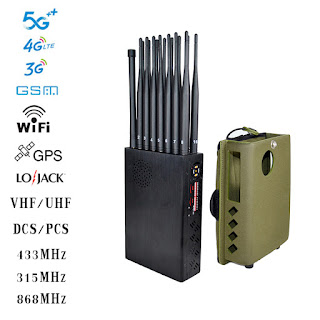American prisons are implementing new technology to reduce the use of illegal cellphones
What’s the context?
US prison officials harness new technology to crack down on contraband cellphones but some still want powers to jam signals
- South Carolina programme shuts off more than 800 phones
- Federal action on broader signal jamming tech seen as unlikely
- Activists raise privacy, rights concerns for prisoners
RICHMOND, Virginia - As director of South Carolina's Department of Corrections, Bryan Stirling believes he knows what is needed to make the state's 21 penal institutions safer while also protecting people outside the prison walls.
Ideally, Stirling would like to have the power to jam phone signals from the state's prisons to tackle the scourge of illegal cellphones being used to facilitate crimes ranging from sex trafficking to murder-for-hire and drug dealing.
But this action has been prohibited under federal law for decades, and there is no immediate sign of change despite numerous appeals from law enforcement officers across the country, including a letter from top state prosecutors to the leaders of Congress last year.
With no movement likely in the near future, South Carolina opted for a pilot programme that allowed authorities in Lee Correctional Institution to identify and shut down contraband cellphones. More than 800 phones have been shut off at Lee since last July, out of an inmate population of about 1,100.
"We call it a pilot, but it's basically the system in there now," said Stirling. "We are using this technology in Lee and we will continue to use this technology until we can secure the money to do it everywhere."
Cellphone jammers not enough to block calls from prisoners
- This is the view of senior prison officials who tell the Sunday Express that even though signal blocker (which they say are operational) are used to block signals from cellphones within the prisons, other interception technologies are needed for the system to be effective.
- “Cellphone jammers are being used. But they need to be in use with other technologies like Wi-Fi jammers to be truly effective. We can see this in other jurisdictions. But it’s yet to be properly utilised here.
- “So you will have prisoners with cellphones and tablets who cannot make calls. But they can use either the phone’s data, or if they have access to a hot-spot device or a Wi-Fi box, they will be able to make calls via social media apps. These include things like WhatsApp, Facebook and Instagram. So there is still the issue of communication with the outside world. Communication is still being made.
- “In other jurisdictions, you will see the cellphone jammers being used with other interception devices to determine the frequencies used by these devices, and then target those specific frequencies. If this is not done, then it’s almost like spinning top in mud,” a senior source in the Prison Service explained yesterday.



Comments
Post a Comment